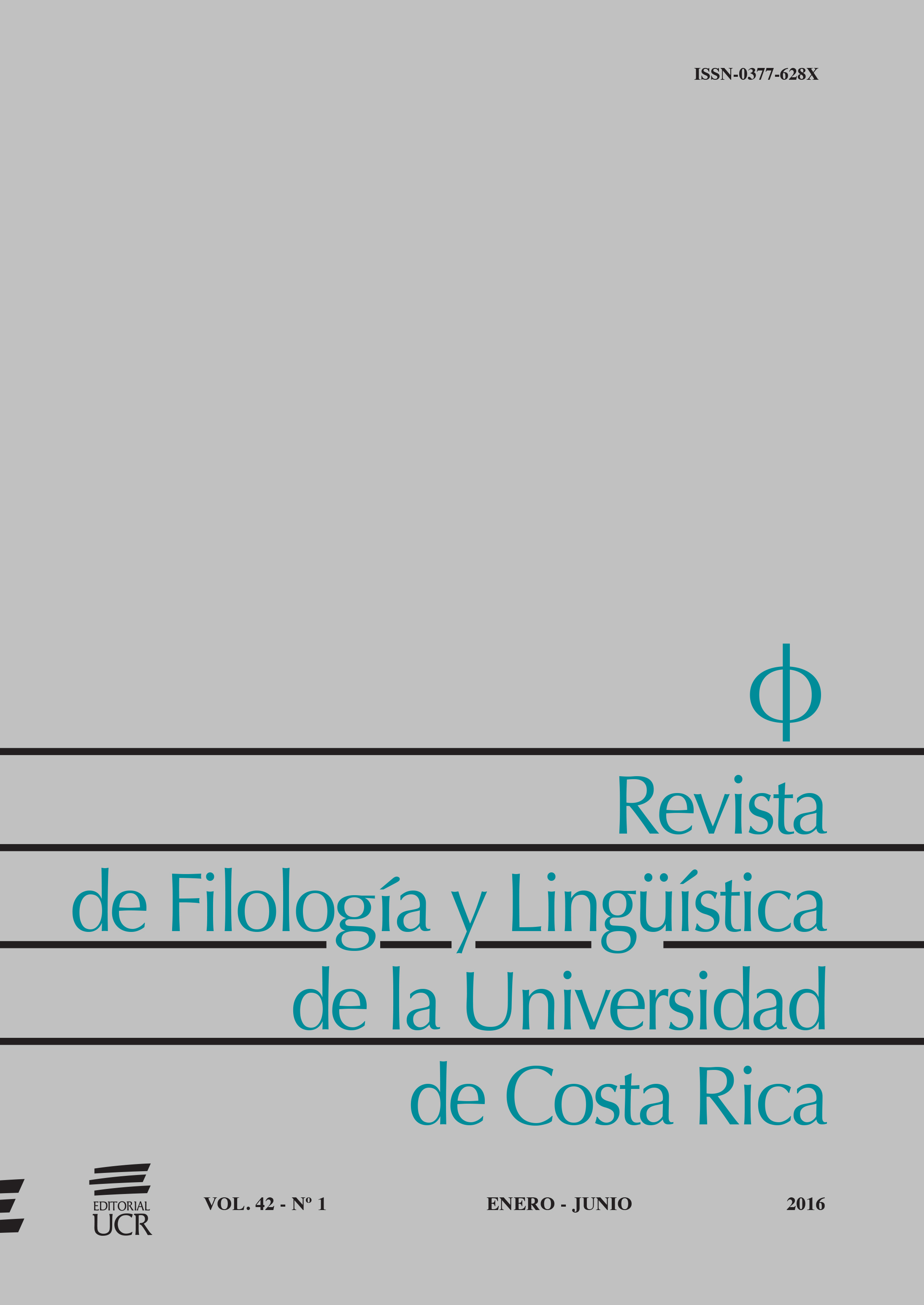Abstract
The research article delves into the underlying heterosexism and homophobia of two Central American novels, Ruido de fondo (2006) and The Tattooed Soldier (1995), and retraces the origins of these notions to the Spanish colonial womb. These notions grew from patriarchal, sexist views of gender imposed on indigenous Central American societies. Before Columbus’ fateful arrival in the Americas in 1492, hierarchical organizations of humans did not exist. However, after the Spanish engineered various militaristic conquests, indigenous societies were forced to adopt Spanish ideals. Soon after, the Spanish usurped the legal and penile systems in Central America, empowering them to govern morality in the region. With this power, the Spanish began to erase indigenous culture and cultivate these hierarchical, patriarchal, and heterosexist norms. Four centuries later, these norms are analyzed in the heterosexism of two contemporary Central American novels: Ruido de fondo and The Tattooed Soldier. The novels demonstrate how defamatory portrayals of homosexuals and the policing of masculinity in Central American society perpetuate and legitimize violence against and hatred of homosexuals.
References
Brown, T. (2007). “Abominable Sin” in Colonial New Mexico. Long before Stonewall: Histories of Same-sex Sexuality in Early America. T. A. Foster (Ed.). New York: New York UP.
Duverger, C. (July, 2007). Espagnols-Indiens: le choc des civilizations. L'Histoire. 14-21. Print.
Dyer, Z. (2014, December 16). Activists Decry ‘Genocide’ of Gay, Lesbian and Transgender Organizers in Central America. The Tico Times. http://www.ticotimes.net/2014/12/16/ activists-decry-genocide-of-gay-lesbian-and-transgender-organizers-in-central-america [Accessed 17 Apr. 2015].
Gilley, B. J. (2006). Becoming Two-Spirit: Gay Identity and Social Acceptance in Indian Country. Nebraska: U of Nebraska Press.
Josserand, J. K. (2002). “Women in Classic Maya Hieroglyphic Texts.” Ancient Maya Women. Ardren, T. (Comp.). Walnut Creek, CA: AltaMira.
Lugones, M. (2008). The Coloniality of Gender. 1-17. WorldCat. [Accessed 9 Nov. 2014].
Garrett, M. T. and Barret, B. (2011). Two Spirit: Counseling Native American Gay, Lesbian, and Bisexual People. Journal of multicultural counseling and development. 31 (2), 131-142. http://onlinelibrary.wiley.com/doi/10.1002/j.2161-1912.2003.tb00538.x/epdf. [Accessed 10 Apr. 2015].
Montero, O. (1997). Modernismo and Homophobia. Sex and Sexuality in Latin America. D. Balderston and D. J. Guy. (Ed.). New York: New York UP.
Pascoe, C. J. (2012). Dude, You’re a Fag: Masculinity and Sexuality in High School. Berkeley, CA: U of California.
Payeras, J. (2006). Ruido de fondo. Guatemala: Magna Terra Editores.
Quijano, A. (2000). Coloniality of Power and Eurocentrism in Latin America. International Sociology. 15 (2), 215-232. http://iss.sagepub.com/content/15/2/215.full.pdf+html [Accessed 17 Apr. 2015].
Sigal, P. (2000). From Moon Goddesses to Virgins: The Colonization of Yucatecan Maya Sexual Desire. Austin: University of Texas Press
Stehn, A. (sf). Latin American Philosophy. Internet Encyclopedia of Philosophy. www.iep.utm. edu/latin-am/ [Accessed 18 Apr. 2015].
Tábora, R. (2001). Desde nuestros cuerpos hacia una nueva lectura de la política, la democracia y la sexualidad en Centroamérica. http://www.centrodesarrollohumano.org/pmb/opac_css/doc_num.php?explnum_id=651/ [Accessed 17 Apr. 2015].
Tobar, H. (1995). The Tattooed Soldier. New York: Penguin.
Tortorici, Z. (2012). Against Nature: Sodomy and Homosexuality in Colonial Latin America. Wiley Online Library. (10.2), 161–178. [Accessed 9 Apr. 2015].
Vargas-Llosa, M. (2012, 8 April). La caza del gay. El País. http://elpais.com/elpais/2012/04/04/ opinion/1333540547_113226.html/ [Accessed 9 April 2015].

